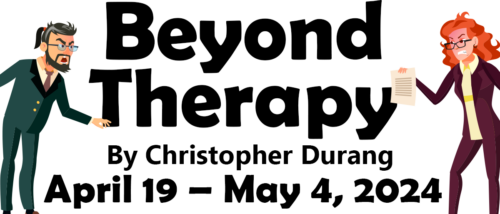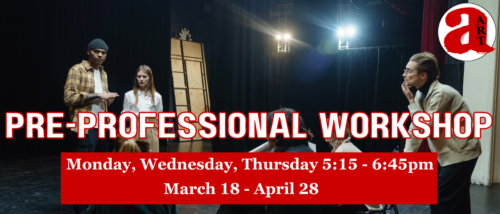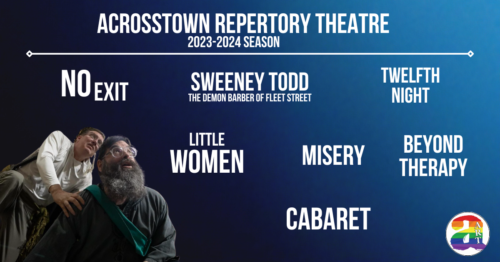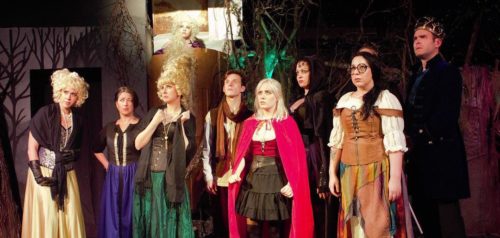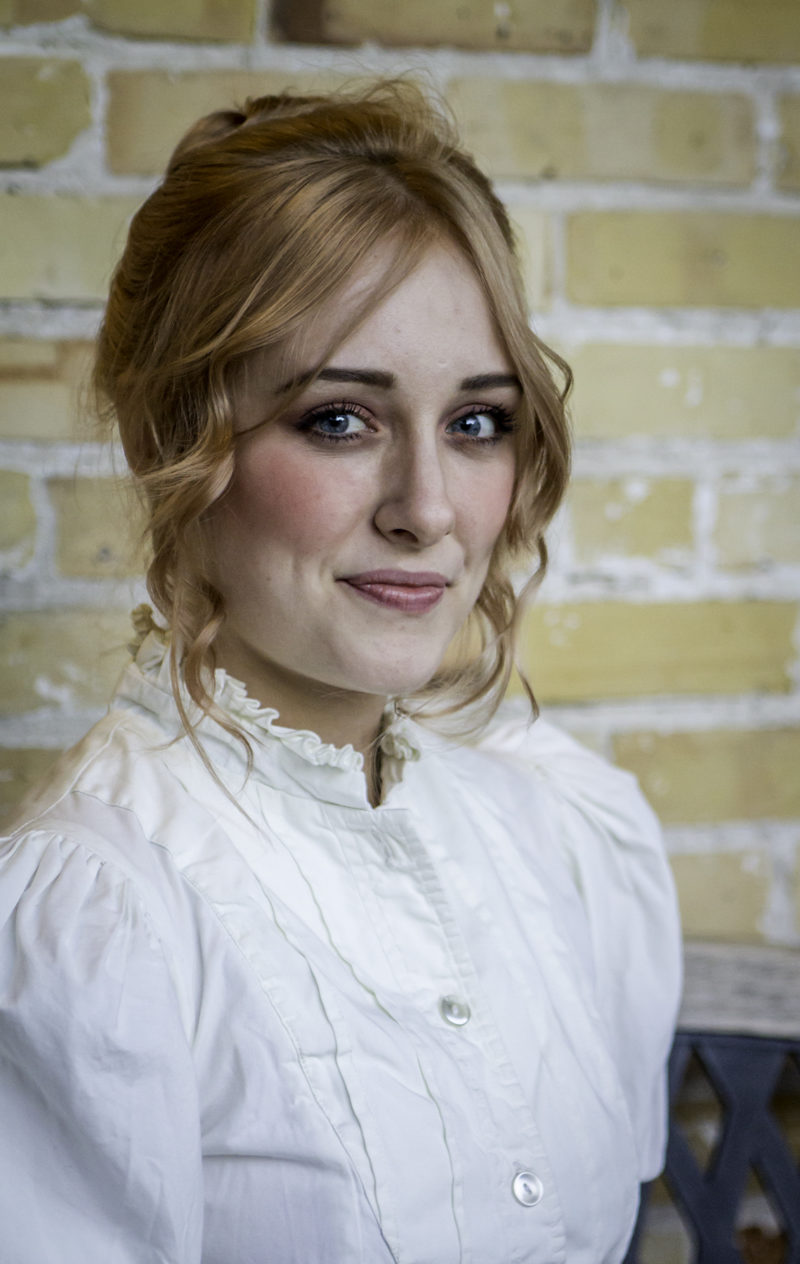
Name: Emma Grimm
I play: Claire Clairmont
In his introduction to the play Brenton disclaims any interest in moralizing over the actions of his characters. But, reflecting on your preparation and time in the role, do you personally feel that your character is fundamentally a good person or no?
Claire Clairmont, in my humble opinion, is the silent protagonist of the Shelley narrative. Though she may not have thought of herself as much of an individual earlier in life, she came into her own once she departed from the influence of Byron and the Shelley’s. She was much, much more than her deemed title of ‘mistress’. After the death of her daughter Allegra and Percy Bysshe Shelley, she distanced herself from their radical ‘free love’ lifestyle. As a result of this choice, I feel that Claire was absolved of her morally questionable past. Letters have recently been discovered that completely contradict our previous understanding of her relationship with the Shelley’s. She writes towards the end of her life, “Under the influence of the doctrine and belief of free love, I saw the two first poets of England… become monsters.” She was able to reflect on their lives together and see just how self-destructive and selfish they all were. At this turn, she chose to serve as a governess in multiple households in Russia, the children under her care saying they “felt safe, loved, and well-educated.” She also converted to Catholicism despite having rejected the religion earlier in life, the reasoning I believe being related to forgiving herself of her past behavior. I believe in the end, Claire was not quite as happy as she may have deserved, but her ability to transform her life and free herself of these previous ideals, makes her fundamentally good. To quote – “I hope my memory not be lost in oblivion as my life has been.” Looking at the lives of these poets through Claire Clairmont’s eyes allows us to see the harsh reality of their destruction and encourage us to reflect on our own choices, and know that it is never too late to make a change for the better. For that, I thank you Claire. For that, I know you are good.
How have your prepared for you role as Claire?
I didn’t initially intend on researching Claire’s life as much as I have. I read a few articles once I received the part and spoke to my fellow cast members about their knowledge of her involvement in their character’s lives. It wasn’t until Samantha, our ASM, attended a rehearsal and told me that Claire outlived the Shelley’s and Lord Byron by nearly FIFTY years did I become obsessed. I read all of the letters and poetry available on public domain along with many pieces by Byron and Shelley that mentioned Claire. I found her later life to be fascinating and felt deeply connected to the level of pain and regret she felt giving so much of her life to those who gave her nothing in return. She was a sister, but practically chose to cut that relationship off. She was a mother who lost her child, but chose to take care of other’s children thereafter. She was a lover who was taken advantage of and horrendously mistreated. She was a friend to many but loved by few. She had no one to look to but herself at the end of her life. I hope that those seeing this show can finally see the intelligent, kind, passionate side of Claire that was so cruelly disregarded.
Has your character had any effect on you in your everyday life?
I admit to feeling ‘haunted’ by her presence at the beginning of rehearsals. Moving further into the production my obsession subsided, but I do think she has had a mild influenced on my recent life choices. I deeply fear the same regret that Claire felt at the tail end of her life, as I have often allowed my choices to be influenced by my desire to be loved and please others. As a result, I made the conscious decision to try and make a few changes in my life strictly for myself. I’d like to keep some of these decisions private, but among them was the decision to quit my job and work part-time to allow myself more time to look after myself and create. Claire’s work as a governess and the loss of her child made me reflect on my own innate maternal nature and how much I’ve neglected it. So, I got a kitten, Arnie, whom I love dearly and has been nothing but a light in my life since I met him.
How does playing a character based off of an actual historical figure differ from playing a completely fictional character? Which do you prefer?
My first show at the Acrosstown Repertory Theatre was These Shining Lives back in 2016. The play followed the life of Catherine Wolfe Donohue and her friends as they fought in the historical trials against Radium Dial companies for knowingly allowing them to ingest radium while working, which resulted in either life-altering or, in Catherine’s case, fatal illnesses. I had never before felt so deeply connected to a character. The desire to do right by her drove my performance to heights I had never experienced. I feel the same way with Claire. An obligation to do right by her story, and, though I do not consider myself to be religious in any way, I do feel a strong spiritual connection to her at times both on and off the stage. I don’t think I prefer playing historical figures, but thus far in my life, I have enjoyed these roles the most as they have helped me grow significantly as an actor.
What kind of effect do you hope this production will have on audiences?
I hope that audiences allow themselves to dive into the depths of sorrow and pain these characters experience and feel a deep seeded connection to each and every one of them. Though it’s nice to go to the theatre to escape one’s sorrows and feel elated, it’s also important to allow ourselves to cry. This is not a happy story, but rather a story of beauty and the pain that it stems from.

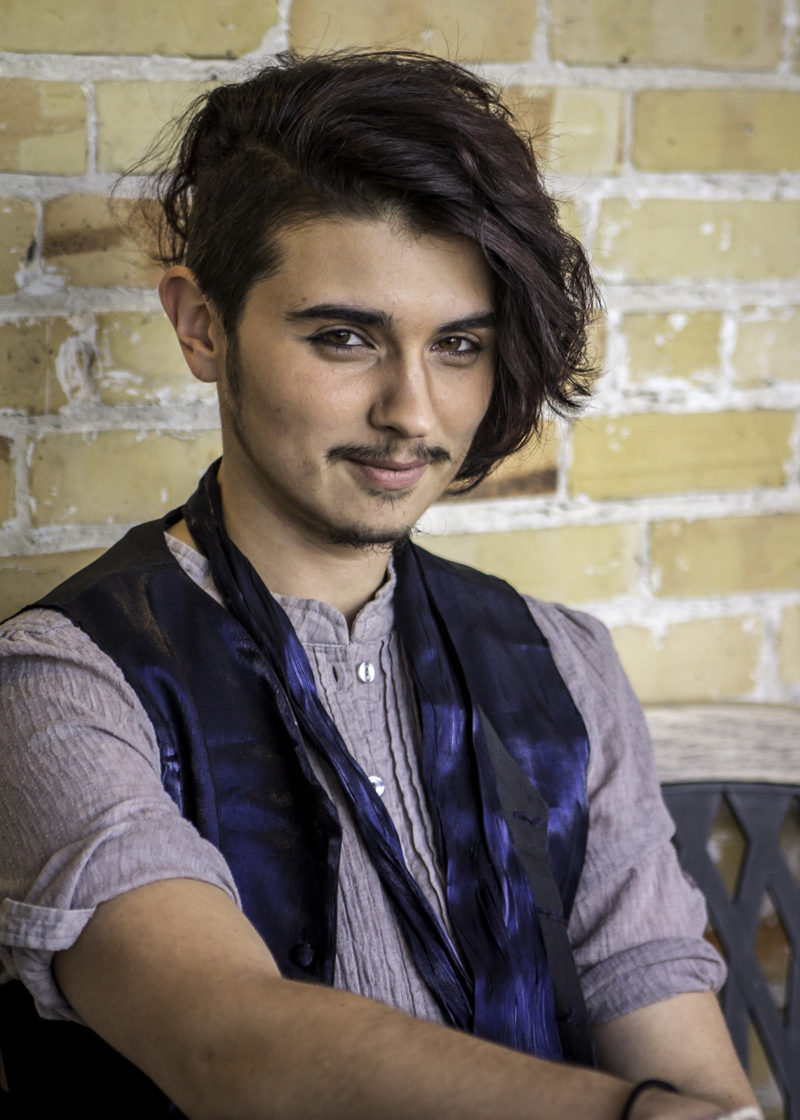
Name: Milo Brooks
I play: Lord Byron
In his introduction to the play Brenton disclaims any interest in moralising over the actions of his characters. But, reflecting on your preparation and time in the role, do you personally feel that your character is fundamentally a good person or no?
Byron is complicated and, no getting around it, inherently flawed. I can’t defend his actions throughout the play, but it is important to examine why he makes these deeply troubling interpersonal choices. I am loathe to offer any spoilers as to the play itself, but what I can say is a Romantic Personality makes a person incredibly susceptible to the body blows that come from living in a flawed society (and despite his protests, Byron WAS a Romantic; deeply in love with liberty, freedom, and the sanctity of life. He would eventually die while in the pursuit of Greek Liberty in 1824). I believe Byron’s response was to become deeply cynical and jaded, ultimately making a real attempt to place less emphasis or import on meaningful relationships. The attempt often failed, leading to more pain and, in the end, more fervent attempts at emotional isolation.
How have you prepared for your role as Lord Byron?
In the end, reading through biographies of Byron have been helpful for interpreting the text. Byron is a man who talks a great deal, but rarely says exactly what he means. Understanding his history, values, and eventual death really help with finding the hidden layers beneath the abrasive front he puts up to create that level of honest emotional separation from society.
Has your character had any effect on you in your everyday life?
In all honesty, Byron and his work have been a long-held fascination for me, but I don’t find Byron appearing in my day-to-day life. I have compassion for him, but it’s easy enough to separate from him. I find his struggles deeply compelling, but he doesn’t haunt me off the stage.
What would these characters think of Howard Brenton’s script?
I have a feeling Byron would be amused by the first act at least. Less so by the second act because we see more of the real man. In reality, he was deeply affected by Allegra’s eventual situation and would likely be pained and ashamed to be reminded of it.
What do you think makes this production unique from others that you’ve done?
This was the first show I’ve ever been in that was directed by a friend quite near to my own age. It’s given the show a very close atmosphere where everyone was free to create as a close-knit, collaborative unit. We were also free to try new methods of reaching our audience.
How does playing a character based off of an actual historical figure differ from playing a completely fictional character? Which do you prefer?
The difference in playing a historical figure is that we have road maps. As I said earlier, having Byron’s histories at my fingertips made it somewhat easier to read between the lines, as it were. Normally, there would be some difficulty in finding the Man behind the Myth, but Brenton’s writing does an excellent job of doing that for us, presenting these monolithic figures at their most base and vulnerable. I really can’t say I prefer one over the other. They both present unique challenges.
What kind of effect do you hope this production will have on audiences?
In the end, there is one thing I want audiences to take away from Bloody Poetry; Catharsis. This show is going to hurt. Honestly? I hope it does hurt. The play, in the end, is about connection…to our world, to our society, to others. It’s a universal struggle; one that doesn’t always end well. I would like for audiences to see these monolithic figures of English literature enduring the very same struggles and realize, maybe, they are not so alone.


